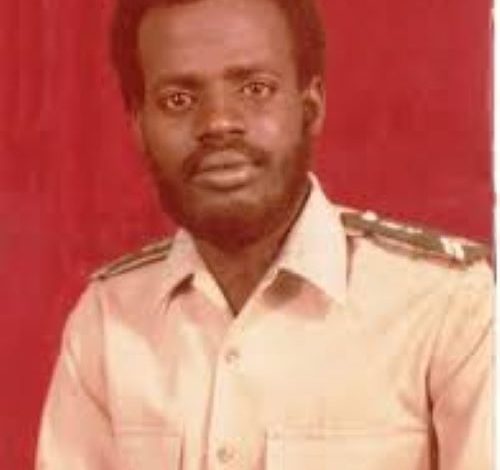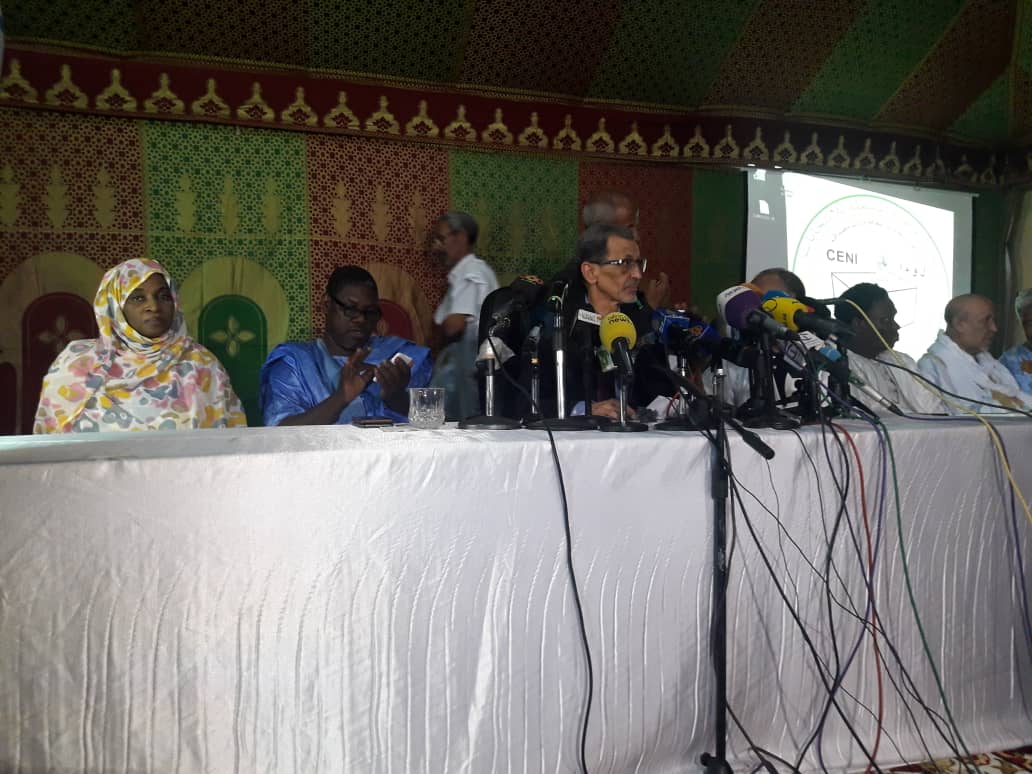Government Opens Infamous Prison To Press By Sheikh Bekaye Associated Press writer

WALATA, Mauritania (AP) _ Conditions at Walata prison have improved considerably since four political prisoners died of ill-treatment, surviving detainees told reporters and human rights officials.
International attention focused last month on this harsh penitentiary 800 miles southeast of the capital, Nouakchott, when London-based human rights organization Amnesty International reported the deaths and poor conditions.
Since then, the prison chief and an assistant have been arrested and the government has ordered an investigation.
″The army officer who was in charge of the prison told us we were sent here to die,″ said Mamadou Bocar Ly, 38, a former interior minister jailed since October 1987 for attempting a coup.
″He always repeated: ’I can kill you and say you died of diarrhea,‴ Ly told reporters allowed to visit the prison at the weekend with Abdelhamid Ould Ghaly, president of the Mauritanian League of Human Rights.
The 32 men imprisoned in this former French fortress constitute the military wing of the Black Mauritanian Liberation Forces who last year tried to overthrow the military government of President Muawiya Ould Sid’Ahmed Taya, who himself seized power in a bloodless 1984 coup.
In a Nov. 21 report, Amnesty International said the government had confirmed the deaths of four political prisoners – writer Tene Youssouf Gueye, policeman Ba Alassane Oumar, Lt. Abdoul Ghoudouss Ba, and former Health Minister Djigo Tafsirou.
The report said prisoners at Walata, built in the 1930s and isolated in the middle of the desert, live under ″particularly harsh″ conditions, suffering from malnutrition and receiving no medical care. Extreme temperatures aggravated the situation.
Amnesty also said unofficial reports spoke of the deaths of three others – Ly, journalist Ibrahim Sarr and engineer Amadou Moktar Sow. Those three, however, were interviewed by reporters on the trip to Walata.
All prisoners they saw appeared in good health. Officials said families of the prisoners would be allowed to visit soon.
After the deaths, the government promised to take action. Thirty-one civilian prisoners were transferred to Ayoun el-Atrouss, 185 miles west of here.
The civilians have been imprisoned since 1986 for distributing ″The Black Mauritanian Manifesto,″ a document accusing the government of racism.
WALATA, Mauritania (AP) _ Conditions at Walata prison have improved considerably since four political prisoners died of ill-treatment, surviving detainees told reporters and human rights officials.
International attention focused last month on this harsh penitentiary 800 miles southeast of the capital, Nouakchott, when London-based human rights organization Amnesty International reported the deaths and poor conditions.
Since then, the prison chief and an assistant have been arrested and the government has ordered an investigation.
″The army officer who was in charge of the prison told us we were sent here to die,″ said Mamadou Bocar Ly, 38, a former interior minister jailed since October 1987 for attempting a coup.
″He always repeated: ’I can kill you and say you died of diarrhea,‴ Ly told reporters allowed to visit the prison at the weekend with Abdelhamid Ould Ghaly, president of the Mauritanian League of Human Rights.
The 32 men imprisoned in this former French fortress constitute the military wing of the Black Mauritanian Liberation Forces who last year tried to overthrow the military government of President Muawiya Ould Sid’Ahmed Taya, who himself seized power in a bloodless 1984 coup.
In a Nov. 21 report, Amnesty International said the government had confirmed the deaths of four political prisoners – writer Tene Youssouf Gueye, policeman Ba Alassane Oumar, Lt. Abdoul Ghoudouss Ba, and former Health Minister Djigo Tafsirou.
The report said prisoners at Walata, built in the 1930s and isolated in the middle of the desert, live under ″particularly harsh″ conditions, suffering from malnutrition and receiving no medical care. Extreme temperatures aggravated the situation.
Amnesty also said unofficial reports spoke of the deaths of three others – Ly, journalist Ibrahim Sarr and engineer Amadou Moktar Sow. Those three, however, were interviewed by reporters on the trip to Walata.
All prisoners they saw appeared in good health. Officials said families of the prisoners would be allowed to visit soon.
After the deaths, the government promised to take action. Thirty-one civilian prisoners were transferred to Ayoun el-Atrouss, 185 miles west of here.
The civilians have been imprisoned since 1986 for distributing ″The Black Mauritanian Manifesto,″ a document accusing the government of racism.
This West African nation is dominated by people of Arab Berber origin who outnumber blacks 4-1. Blacks have become increasingly vocal in opposing the Arabs.
According to prison inmates, the villain at Walata was a Lt. Ghaly, who not only imposed harsh conditions of forced labor and poor food but regularly mistreated prisoners.
″We ate only rice and water for nine months,″ said Abdoullay Milikel. ″There have been improvements since last May when (Ghaly) was removed.″
The real turning point, prisoners say, was when Interior Minister Gibril Ould Abdallahy visited and met detainees.
Mauritanian officials said appropriate measures have been taken against those involved.
The human rights leader said he was satisfied with the current situation of the detainees, but he urged Mauritanian authorities to impose heavy punishment on those who ill-treated prisoners






